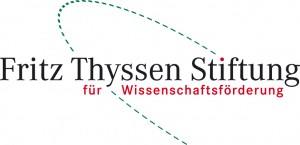Staff and students are cordially invited to attend the next event in our staff seminar series. Richard Johnston (UBC, Vancouver) will give a talk on campaign effects in the US, Canada, and Germany on Wednesday May 20, 6pm in room 01-611 (Georg-Forster-Gebäude).
Our Guest
Richard Johnston is one of the world's leading experts on electoral behaviour and electoral campaigns. He holds the Canada Research Chair in Public Opinion, Elections, and Representation at UBC and is also a Marie Curie Research Fellow at the EUI (Florence)
Campaign Effects
 Elections are a defining feature of representative democracy, and electoral campaigns are critical for accountability and for signals about policy. But so far the research record yields very partial views of whether - or how - campaigns work. Broadly, two schools can be identified. On one side, elections are driven by predictable "fundamental" forces that campaigns merely activate. On the other, campaigns do more: they are critical to the result and produce history in their own right. The fundamentalist perspective is essentially benign. More intense campaigns bring out more voters. Negative claims are more truthful than positive ones; indeed the increased volume and negativity of campaigns has compensated for the decline in substantive news coverage. Elections without campaigns would be far more random events than are elections with them. On the rival view, campaigns are sites for character assassination if not outright manipulation. These fears are amplified by technological developments, including the rise of social media and "big data," and extend even to the most traditional form of campaign effort, doorstep mobilization. Can these competing claims both be true? If so what is their relative weight, and how are those weights contingent on institutional and party-system context?
Elections are a defining feature of representative democracy, and electoral campaigns are critical for accountability and for signals about policy. But so far the research record yields very partial views of whether - or how - campaigns work. Broadly, two schools can be identified. On one side, elections are driven by predictable "fundamental" forces that campaigns merely activate. On the other, campaigns do more: they are critical to the result and produce history in their own right. The fundamentalist perspective is essentially benign. More intense campaigns bring out more voters. Negative claims are more truthful than positive ones; indeed the increased volume and negativity of campaigns has compensated for the decline in substantive news coverage. Elections without campaigns would be far more random events than are elections with them. On the rival view, campaigns are sites for character assassination if not outright manipulation. These fears are amplified by technological developments, including the rise of social media and "big data," and extend even to the most traditional form of campaign effort, doorstep mobilization. Can these competing claims both be true? If so what is their relative weight, and how are those weights contingent on institutional and party-system context?




